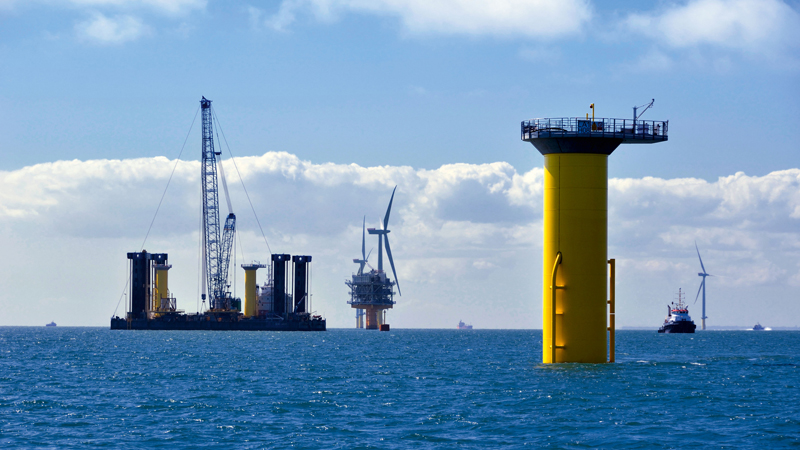The Green Investment Bank (GIB) appears destined for the scrappers’ yard, with its major assets set to be stripped when it’s finally sold later this month.
Reports emerged on Sunday that the likely buyers of the GIB – Australian bank Macquarie – plan to sell off its wind and biomass acquisitions once they’ve taken over.
Since its launch in 2012 the GIB has invested £2.7 billion in the UK green economy, supporting offshore wind, energy-from-waste and efficient street lighting projects.
The government says it will hold a “golden share” in the bank once its sold, allowing it to ensure its original mandate is preserved, but sources say that will not stop any sell-off.
“It’s a minor tragedy,” a City source told Climate Home when asked about the GIB’s future. Macquarie is known in investment circles as the “vampire kangaroo” for its focus on profit.
“The Green Investment Bank has played a key role in the last four years funding novel green infrastructure projects,” said Nick Molho, executive director of the Aldersgate Group.
“The whole idea has been for the bank to fund projects that without its intervention they would struggle to attract affordable private sector investment.”
The UK government is expected to deliver a plan to cut emissions through 2030 by March. Energy chief Greg Clark is set to give evidence on this to lawmakers on Tuesday afternoon.
Wind beats coal
Better news for the UK in new analysis from Carbon Brief, finding that wind now provides more electricity than coal in the UK.
“The amount of electricity generated by coal-fired power stations in 2016 – at an estimated 31 terawatt hours (TWh) – was the lowest since around 1935, Carbon Brief analysis suggests. That year, President Roosevelt opened the giant Hoover Dam in Nevada and Hitler began remilitarising Germany.”
UK to leave single market
That was the unequivocal message from prime minister Theresa May on Sunday, speaking on Sky News – but what does this mean for the UK and EU links over climate policy? I’d love your views – email [email protected].
Day of denial
Later on Monday, US green groups will hold a #DayAgainstDenial in 50 states to highlight the anti-science views expressed by many of Donald Trump’s cabinet picks.
These include Exxon Mobil CEO Rex Tillerson as his choice for top diplomat; Scott Pruitt for EPA Administrator; Former Texas governor Rick Perry for Secretary of Energy and representative Ryan Zinke for Department of Interior.
Here’s a backgrounder on the protests from campaign group 350:
“A majority of people in America did not vote for Donald Trump. He got almost 3 million fewer votes. The people that worked and voted against him often are more likely to be younger and part of vulnerable communities who will together bear the biggest impacts of climate change, and his vicious policies. Together we can make sure that this majority is visible, fired up and heard by people in power.”
Kerry speech
Also stateside, John Kerry is primed to deliver one of his final addresses as US secretary of state, this time focused on climate change.
According to the State Department, “Kerry will highlight climate change, innovation, and the global transition to a clean energy future during a speech at the Massachusetts Institute of Technology (MIT) at 10:30 a.m. on January 9, 2017” – watch live here.
2017 priorities
Here are the thoughts of one European climate negotiator Climate Home spoke to last week:
-See the EU deliver its 2030 climate package
-Keep Polish mitts off the 2018 UN climate review
-Pressure countries to deliver 2050 climate plans
-Increase sub-national climate engagement
-Pray Trump doesn’t find the ‘cancel Paris’ button
Do you have any climate goals, ambitions or predictions this year? Email [email protected] (make it clear if these are on background or you’re happy for them to be published)
